Thousands of Croatians have marched against women because they don’t want gay marriage
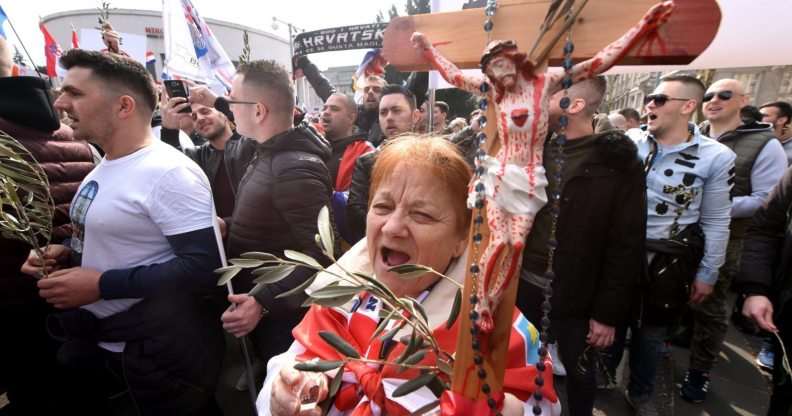
(Getty)
Thousands have marched against a European initiative which aims to protect women – because it could legitimise transgender people and same-sex marriage.
The Istanbul Convention, which came into force in 2014 and has been signed by 46 nations – as well as the European Union as a whole – was created around the concept of “preventing and combating violence against women and domestic violence.”
The protesters in central Zagreb were rallying against the agreement because of the convention’s definition of gender.
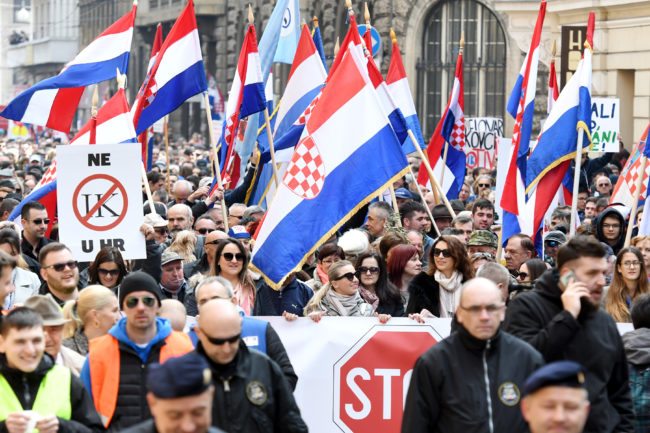
(Getty)
It defines it as “the socially constructed roles, behaviours, activities and attributes that a given society considers appropriate for women and men”.
This phrasing – which deserves some credit, considering it was formed by the Council of Europe back in 2011 – leaves the concept of gender open to a trans-friendly interpretation. And to be fair, that’s probably what the Council was aiming for.
It would also leave legislative room for those who support marriage equality, according to marchers.
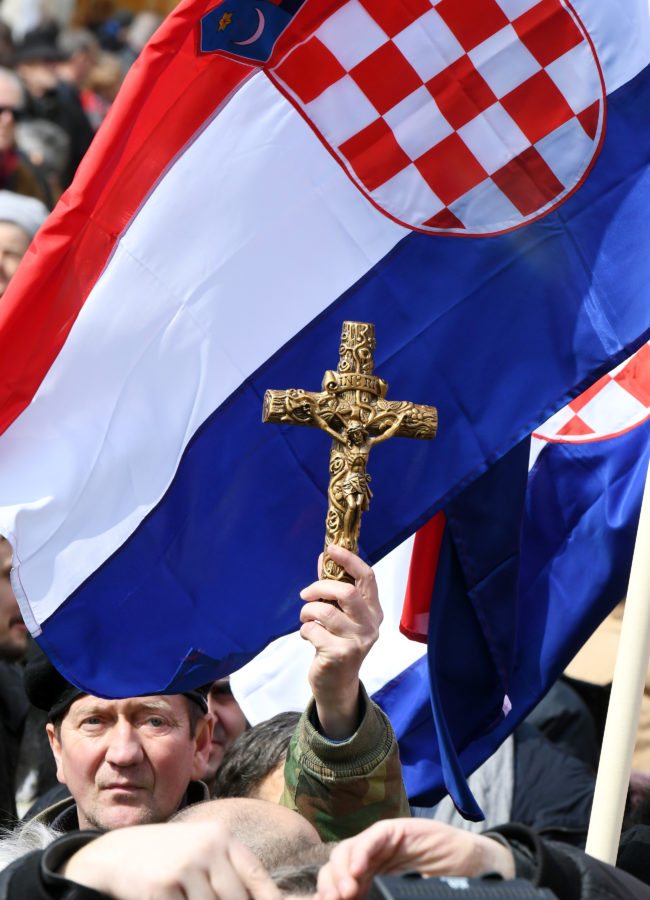
(Getty)
Croatia’s centre-right government has given its approval to the country’s entry into the agreement, causing uproar from within and from conservative organisations and the Catholic Church.
And with Parliament having not yet ratified the move, thousands gathered in the Croatian capital to make their feelings clear.
The protesters watched on as speakers called for Prime Minister Andrej Plenković to resign because of his support for the agreement.
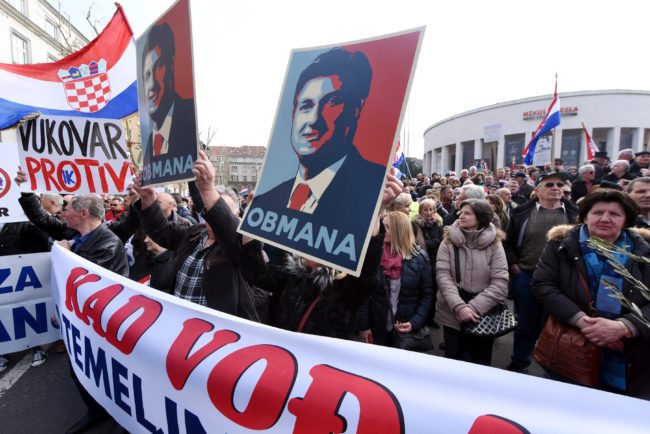
(Getty)
One of those at the rally – which was met by a counter-protest from women’s rights groups – was conservative leader Željka Markić.
In 2013, Markić was one of the leading forces in the U ime obitelji (In the Name of the Family) movement which sparked a referendum about defining marriage as solely heterosexual.
The campaign succeeded in pressuring the government into holding a referendum, which saw two-thirds of Croatians vote to ban same-sex marriage.
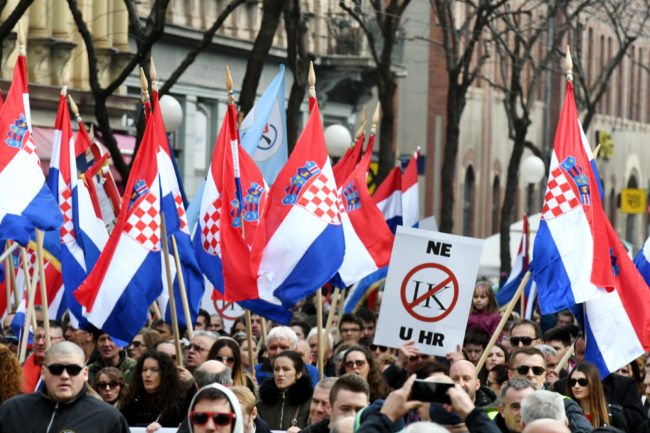
(Getty)
Markić told the Associated Press: “We are against gender ideology.
“The definition of gender separated from sex was not agreed on the level of the European Union or on the level of the Council of Europe.”
Gordana Turić, a former ruling party lawmaker, added: “They say we are backward because we believe in God.
“The Istanbul convention is against Christianity.”
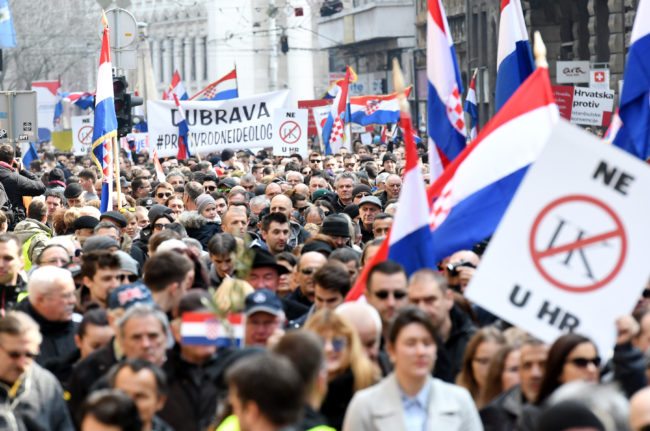
(Getty)
Protest organiser Kristina Pavlovic told Reuters that the march and the issue formed “a turning point for Croatia”.
She said citizens “must decide whether Croatia will choose a preservation of family and traditional values or go another way imposed from outside, from Brussels, or like what we see in Canada where there will be a Parent One and Parent Two instead of mother and father.”
Polls suggest that as many as two-thirds of Croatians support the convention.
Despite this fact, Church organisations have called for a referendum on ratification, perhaps with the successful anti-same-sex marriage referendum of 2013 in mind.

